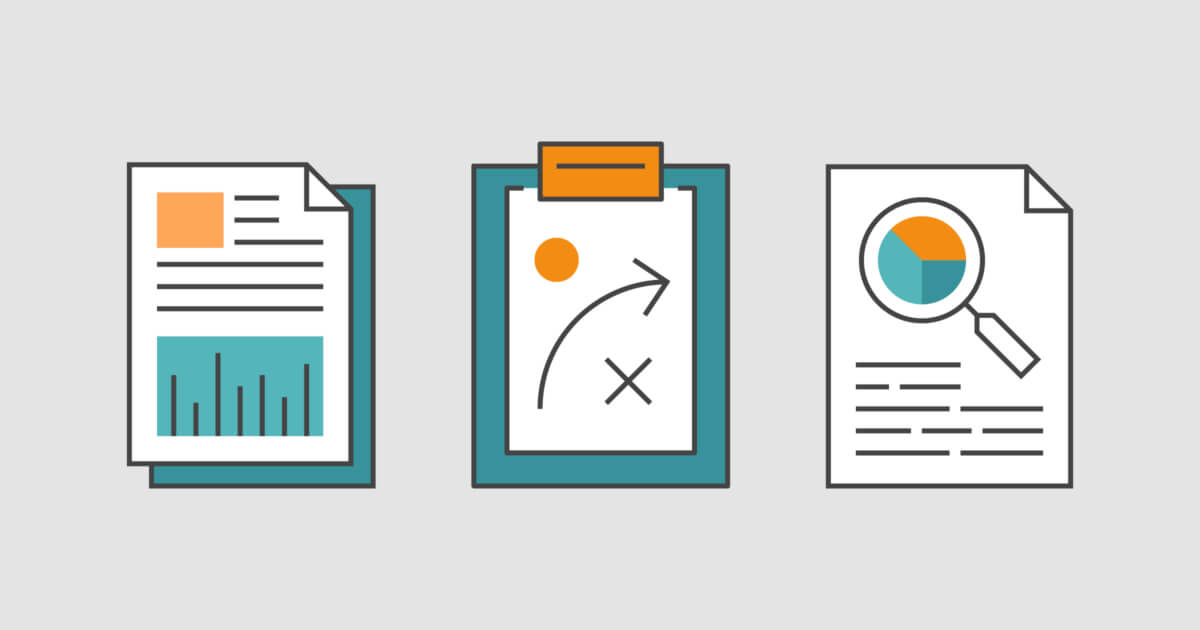
Menu of Outcomes Series: Five Ways Charities Are Improving Animal Welfare Standards
In our Menu of Outcomes blog series, we explore different interventions for achieving animal advocacy outcomes and highlight real-world examples from charities across the movement. Here, we look at interventions aimed at improving animal welfare.
Introduction
This post highlights some of the ways animal advocacy groups are working to improve animals’ lives by advocating for better welfare standards. Despite concerns that welfare improvements may lead people to feel better about—and not reduce—their consumption of animal products, ACE recognizes the potential of such improvements to reduce the suffering of numerous animals (particularly fishes and chickens) and considers it to be a positive and promising approach overall.
Our goal here is not to examine or compare the effectiveness of different interventions,1 but rather to showcase the diversity of approaches animal advocates can use to achieve similar goals. We hope that the programs and interventions below inspire organizations and individuals to broaden their awareness of ways to approach their work.
Compassion USA
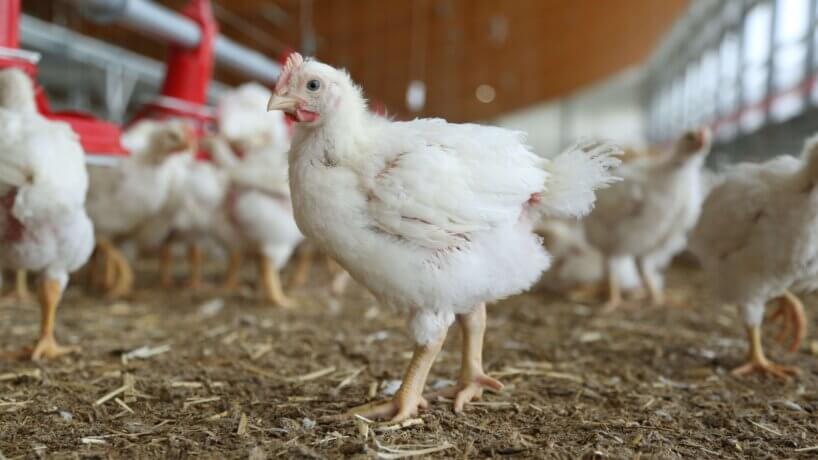
Through its Food Business program, Top Charity Compassion USA encourages food companies to work toward a more compassionate, sustainable food system by implementing policies that improve animal welfare standards. In addition to providing individual guidance to food businesses, they created two first-of-their-kind corporate transparency tools, EggTrack and ChickenTrack, to track companies’ progress against their commitments to source cage-free eggs and improve broiler chicken welfare.
Laying hens and broiler chickens (i.e., chickens killed for meat) suffer some of the worst abuses on industrial farms. They are routinely raised in high stocking densities with no enrichment, sunlight, or room to engage in their natural behaviors. Injuries are common due to the cramped conditions in battery cages—where the space allowance per hen is smaller than an A4 sheet of paper—or the chickens’ abnormal growth rate, which stresses their heart and impacts their ability to walk.
ACE’s research suggests that if corporations follow through on their commitments, cage-free corporate outreach is likely to positively affect hen welfare because cage-free systems are higher-welfare than battery cage systems. The same likely applies to broiler chicken welfare.
EggTrack and ChickenTrack aim to hold companies accountable to their commitments to phase out the most harmful farming practices in favor of higher-welfare ones. These include eliminating battery cages, providing opportunities to perform natural behaviors, and meeting the standards outlined in the Better Chicken Commitment.
“Compassion in World Farming believes in transparent progress reporting as a critical tool that ensures companies continue to make progress against their animal welfare commitments,” said Tessa Hale, U.S. Head of Food Business for Compassion USA. “We believe that when companies and their stakeholders, like consumers and investors, see progress toward animal welfare commitments across food businesses comparatively, it creates an incentive for individual businesses to achieve their goals, and even attain them earlier than planned.”
As of 2021, 71% of the 219 companies included in the annual EggTrack Report increased cage-free sourcing in their supply chains. All 100% of the 12 companies included in the annual ChickenTrack Report reduced stocking density. Compassion USA is hopeful to see greater compliance and reporting from companies as higher-welfare practices become the new standard.
Shrimp Welfare Project
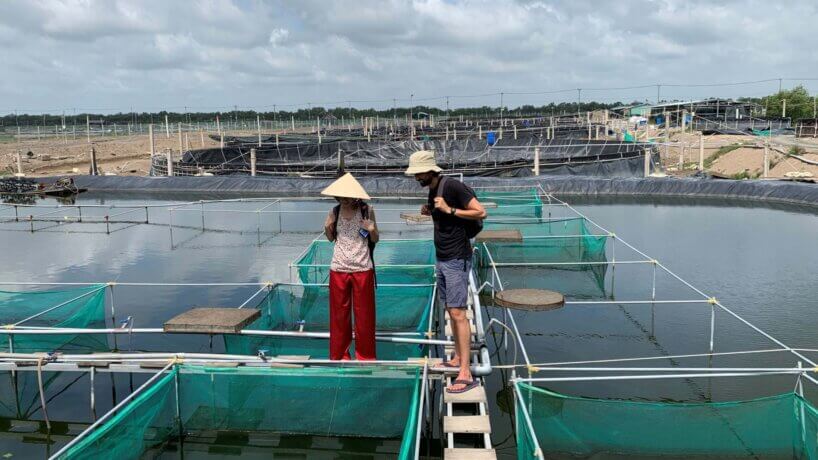
The number of shrimps killed for food each year far exceeds the number of land animals, yet efforts to alleviate their suffering are highly neglected. Movement Grant recipient Shrimp Welfare Project (SWP)—the first organization to focus exclusively on this species—aims to improve the lives of farmed shrimps and raise awareness of their welfare needs.
SWP kicked off its first projects in Vietnam and India in 2022. They intend to work directly with shrimp farmers and other relevant stakeholders to implement better welfare practices, improve water quality, and increase consumer demand for higher-welfare shrimps. Welfare considerations include limiting stocking densities (which mitigates disease risk), avoiding eyestalk ablation, maintaining good water quality, and using more humane slaughter methods.
“Shrimp Welfare Project’s supply-side work takes place in contexts in which typical strategies to improve farmed animal welfare show little promise of impact. Farmers in India and Vietnam do not have access to capital or training to implement higher-welfare practices, nor is there (currently) [mobilized] pressure on shrimp farming to improve welfare,” said Aaron Boddy, Chief Impact Officer of SWP.
“Our Theory of Change, therefore, relies on working collaboratively with industry to create a proof-of-concept model of improving welfare practices on farms or at slaughter while limiting the cost of implementing such improvements. We do this with local (Indian and Vietnamese) staff to increase our probability of success.”
After testing their proof-of-concept, SWP plans to broaden the scope of their work to include larger-scale interventions such as corporate outreach and legislative advocacy. Adopting better welfare standards of this magnitude would not only improve the lives of billions of shrimps, but could also be in the best interest of the shrimp farming industry.
“[T]he industry itself is waking up to the risks that poor welfare poses to its own profitability and is proving receptive to some of our proposed welfare improvements,” said Boddy. “Testament to this is the recent multi-stakeholder event held in Gujarat, India, in which SWP signed MoUs with [seven] different parties (producers, processors, and exporters) committing to adopt higher welfare practices, as defined by SWP.”
AnimaNaturalis
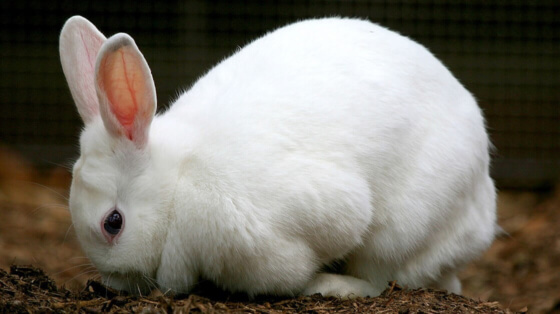
While rabbits are farmed in much smaller numbers than other land animals, welfare standards to protect them are still significantly lacking. According to AnimaNaturalis, roughly 40 million rabbits raised for their meat in Spain are housed in restrictive cages, similar to battery cages for laying hens.
“Spain is one of the largest consumers of rabbit meat in the E.U.,” said Cristina Ibáñez García, Barcelona Coordinator for AnimaNaturalis. “[M]ore than half of the rabbit farms in the E.U. are here, with about 3,833 rabbit farms.”
Although Austria, the Netherlands, Belgium, and Germany have banned cages for meat rabbits, there is no specific legislation on farmed rabbit welfare in the E.U. Spanish rabbit farmers are therefore only required to follow the most basic animal welfare standards, such as providing water, food, and medicines.
“Current legislation allows [rabbits] to live crowded in cages with wire floors, without any type of enrichment and in a space less than the size of a sheet of paper per animal,” said Ibáñez García. “In these cages they cannot develop natural behaviors such as running, jumping, or gnawing. The same types of cages are used for fattening rabbits, for pregnant females, and for their young.”
In 2022, AnimaNaturalis received a Movement Grant to investigate issues on intensive rabbit farms in Spain and launch a campaign to lobby for welfare legislation. Because Spain is the primary producer of rabbit meat in Europe, success here could be influential in achieving more comprehensive reform throughout the E.U.
Nurture Imvelo Trust
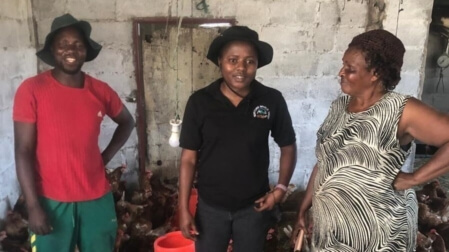
Nurture Imvelo Trust (NIT) is a youth organization that seeks to improve animal welfare status in Zimbabwean communities. NIT has conducted research on both the use of stalls and crates in pig farms and battery cages in egg production, to understand communities’ perceptions of animal welfare and identify the need for higher-welfare practices.
“As an organization, we believe in research, for it helps inform us on the landscapes of animal welfare in communities, so that we may know what kind of interventions are needed to improve animal welfare in the country,” said Diana Thubelihle, Programs Director for NIT.
In 2022, NIT received a Movement Grant to launch an awareness campaign about the welfare issues of caged hens and conduct corporate outreach to secure cage-free commitments from companies.
As part of their cage-free campaign, NIT engages farmers who use cage-free or deep litter farming as opposed to battery cages. They plan to increase consumers’ awareness of these farms by promoting their products on social media.
In addition to spreading awareness about the availability of cage-free alternatives, NIT also works to educate the public about the suffering that caged hens endure. They’ve released social media posts and a video calling for an end to the use of battery cages in Zimbabwe, and they plan to produce an educational animation to connect with children in schools.
“As an organization, the most crucial intervention is community education,” said Thubelihle. “We believe that through community education, people can learn, can understand, and can value animal welfare, and they are able to treat animals better.”
Fundación Derecho y Defensa Animal
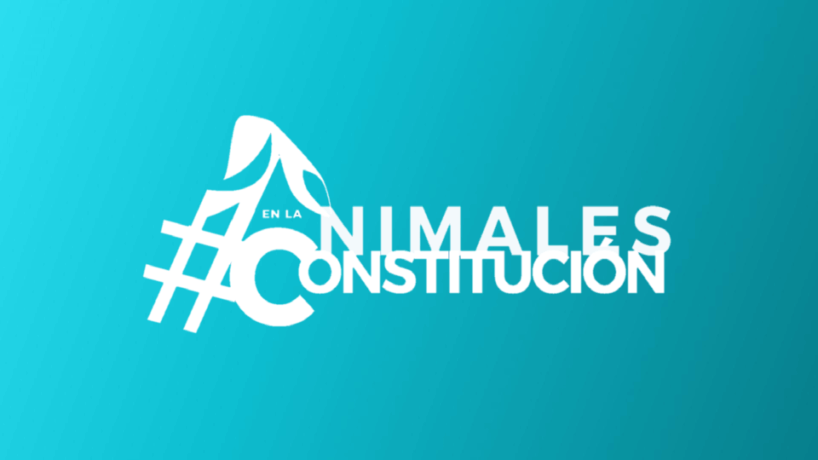
Movement Grant recipient Fundación Derecho y Defensa Animal (DyDA) uses legal approaches to establish and improve animal welfare standards in Chile. One of their current campaigns is Animales en la Constitución, which seeks to encode nonhuman animal rights in the Chilean Constitution.
“Animal protection would become a state obligation: therefore, its development wouldn’t depend on a particular government,” said Jean Menanteau, who works for DYDA’s legislative arm. “Furthermore, every branch of the government would have to fulfill this obligation.”
DyDA believes that the constitution should recognize three fundamental pillars of animal rights: sentience, which would establish constitutional protection for nonhuman animals based on their ability to have subjective experiences; state duty, which would obligate public institutions to adopt animal protection measures and prevent violations; and individuality, which would affirm that animals are protected for their own benefit, not for the benefit of humans, and are treated autonomously with respect to the environment.
While the status of the Chilean Constitution is uncertain since it was rejected in the September 2022 referendum, DyDA is still committed to ensuring that animals are protected under the law. Their #AnimalesenlaConstitución campaign, which has been supported by more than 60 organizations in Chile to date, remains active.
“[Including animals in the Chilean Constitution] would affect animal advocacy greatly,” said Jean Menanteau, who works for DYDA’s legislative arm. “It would mean that we could [hold] up animal interests in courts: nowadays, even though Chile has legislation that protect[s] animals, when we are faced against a human interest protected in the [constitution], e.g., religious or commercial, the latter always prevails. If animal interests are protected in the constitution, we could fight on a more equal plane with those interests.”
Animal Charity Evaluators (ACE) seeks to identify the most effective strategies to reduce animal suffering. Based on available research, ACE currently prioritizes institutional interventions—those focused on influencing larger-scale systems and social norms—over individual ones, which affect change at the personal level. Despite this, we recognize that interventions can achieve multiple outcomes, and shifts in individual behaviors can help drive systemic change.
Filed Under: Strategy Tagged With: interventions, Menu of outcomes series
About Selena Darlim
Selena joined ACE in September 2021. She is a longtime animal advocate with several years’ experience writing for nonprofits and media organizations. She holds a self-designed bachelor’s degree in Wildlife Conservation and Animal Advocacy, and she strives to continually expand her knowledge of human and nonhuman advocacy movements.
I love to read this again. I am hoping for the best for the charities that help any kind of life. Thanks a lot!
Yes, of course we can go to that, but my soup kitchen will cater the hungry people first. We can go to the animals when everyone stood up. Thank you.